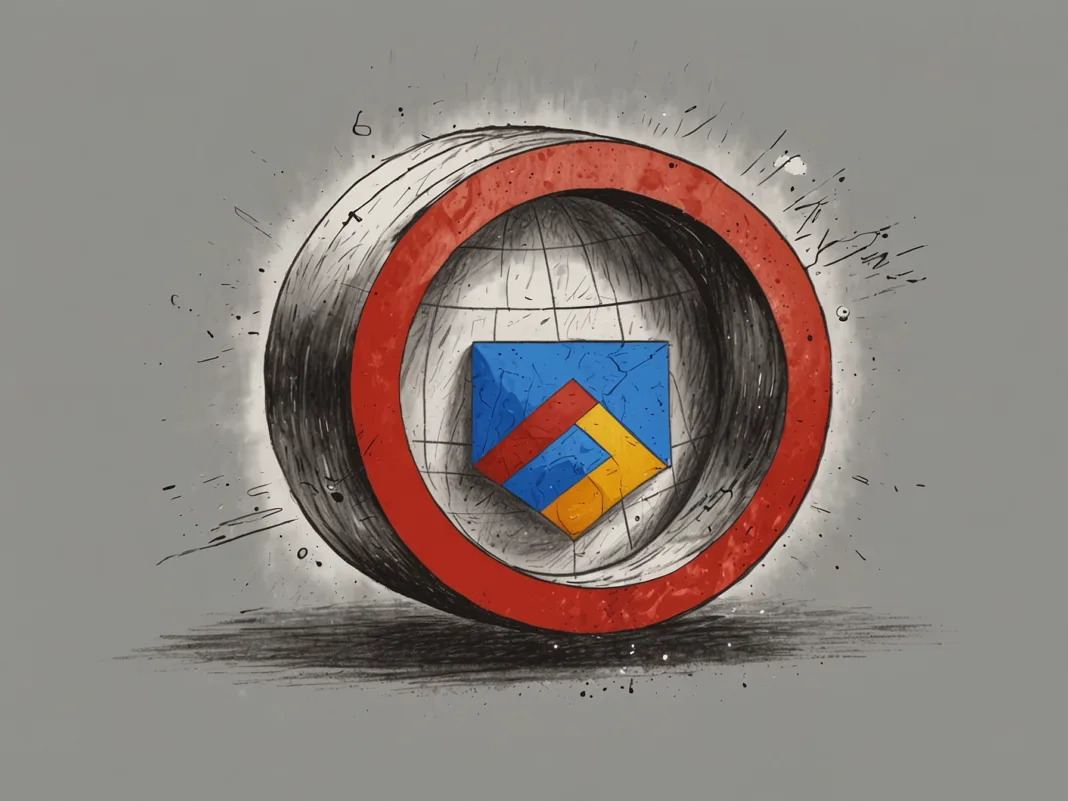Google’s Manifest V3 has set the stage for an ongoing battle with third-party adblockers, posing significant challenges for users who increasingly depend on these tools to enhance their browsing experience. The update, though aimed at improving security and performance, is widely viewed as a move that will constrain the functionality of adblockers, particularly those used in Chrome and YouTube.

© FNEWS.AI – Images created and owned by Fnews.AI, any use beyond the permitted scope requires written consent from Fnews.AI
Manifest V3 fundamentally alters the way extensions interact with the browser, shifting from a background script-based process to one where service workers take the primary role. This might sound like a technical nuance, but it has profound implications. The system in place under Manifest V3 enforces stricter rules around extension permissions and has a new, more restrictive approach to network request handling.
The core of the controversy lies in the Declarative Net Request (DNR) API, which replaces the older Web Request API used by many adblockers. Under the Web Request API, extensions could intercept web requests and modify them as needed. This flexibility allowed adblockers to filter out unwanted content effectively. However, the new DNR API limits this ability significantly by only allowing predefined sets of rules, curtailing the adaptability that adblockers need to keep up with the constantly evolving nature of online advertising.

© FNEWS.AI – Images created and owned by Fnews.AI, any use beyond the permitted scope requires written consent from Fnews.AI
Developers and privacy advocates argue that this change reduces the granularity and effectiveness of content filtering. It is said that the DNR API’s rule-based system can only block a limited number of requests, potentially allowing more ads to slip through. Moreover, it inhibits the use of dynamic rules which are crucial for blocking complex and deceptive ads that adapt their appearance and behavior to bypass static filters.
Despite Google’s assertions that these changes target improved security and faster performance, critics remain skeptical. They contend that it aligns too conveniently with Google’s business model, which heavily relies on advertising revenue. By weakening adblockers, Google ensures that a greater number of users are exposed to ads, thereby bolstering its primary source of income. Thus, the decision is perceived not only as a technical adjustment but also as a strategic maneuver to strengthen its ad ecosystem.
Another concern is the impact on user privacy. Adblockers play a significant role in enhancing user privacy, blocking trackers, and preventing data collection by ads. With the new restrictions, users may find themselves more exposed to these invasive practices. While Manifest V3 includes certain privacy features, the overall reduction in adblocker efficiency could negate these benefits, leaving users more vulnerable.
Extension developers are faced with a stark choice under Manifest V3: comply with the new standards or risk their extensions becoming obsolete on Chrome. This puts significant pressure on developers, many of whom work on such projects in a community-driven or voluntary capacity. The added workload of adapting to the new framework, coupled with the decreased efficacy of their tools, threatens the sustainability of many adblocking projects.
Privacy-focused browsers like Firefox have vowed to support the existing Web Request API, allowing adblockers to retain their full functionality for users who choose alternatives to Chrome. This divergence may well lead to a shift in browser market share, as privacy-conscious users could migrate away from Chrome in favor of more accommodating platforms.
From an SEO perspective, content creators and marketers need to understand these shifts. As adblockers become less effective on Chrome, there might be an increasing opportunity for ads to reach a broader audience. However, this also means that users’ frustration with intrusive ads could grow, potentially driving more individuals toward ad-free Premium services or adblock-enabled browsers.
In conclusion, Google’s Manifest V3 is more than just a technical update; it is a significant pivot that stands to alter the landscape of web browsing, adblocking, and online advertising. While it promises enhanced security and performance, its repercussions on adblockers and user privacy are profound, fueling an ongoing debate about the balance between commercial interests and user autonomy in the digital age.
Was this content helpful to you?





